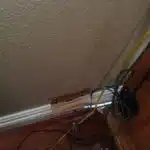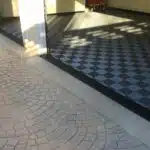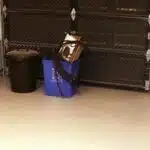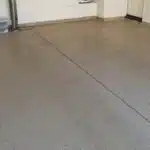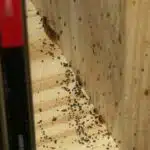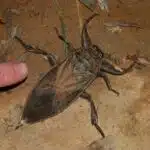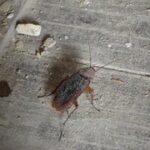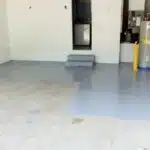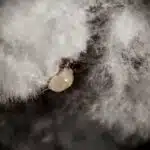As a pest control expert, I understand the frustration that comes with dealing with mice in your garage. These small rodents can cause damage to your property and carry diseases that can be harmful to you and your family. It is important to take action as soon as possible to prevent further infestations and protect your home.
In this article, we will discuss effective methods for getting rid of mice in your garage. We will cover preventative measures, such as sealing entry points and keeping the area clean, as well as humane ways to trap and remove mice from your property. By following these tips and taking a proactive approach, you can eliminate mice from your garage and create a safer and healthier environment for yourself and those around you.
Identifying The Signs Of A Mouse Infestation
As a pest control expert, it is crucial to identify the signs of a mouse infestation in your garage. Mice are notorious for their ability to enter homes through small crevices and cracks, making it difficult to spot them until it’s too late. However, there are some telltale signs that you should be aware of.
One way to identify a mouse infestation is by spotting droppings. Mouse droppings are small and dark, resembling grains of rice. You may find them scattered throughout your garage, especially near food sources such as pet food or birdseed. If you notice droppings in your garage, it’s likely that mice have taken up residence.
Another sign of a mouse infestation is listening for sounds. Mice are active at night and can be heard scurrying around in walls and ceilings or even chewing on wood or electrical wires. If you hear scratching or rustling noises coming from your garage at night, it’s possible you have a mouse problem.
Understanding these signs will help you take the necessary steps to get rid of mice in your garage. In the next section, we will explore the behavior and habits of mice so that you can effectively eliminate them from your home.
Understanding Mouse Behavior And Habits
To effectively get rid of mice in your garage, it is important to understand their communication patterns and habits. Mice communicate with each other through a variety of means including vocalizations, scent marking, and body language. They use these methods to establish territory, attract potential mates, and warn others about possible dangers.
In terms of breeding habits and reproduction cycles, mice are known for their ability to reproduce quickly and frequently. A female mouse can produce up to 10 litters per year, with each litter consisting of around 5-6 offspring. This means that a single pair of mice can potentially create an entire colony within a matter of months.
Understanding these behaviors is crucial in preventing a mouse infestation from occurring in the first place. By taking proactive measures such as sealing entry points and removing potential food sources, you can greatly reduce the likelihood of mice taking up residence in your garage. However, if you do find yourself dealing with a mouse problem, it is important to take swift action before it becomes more difficult to control.
Transitioning into the subsequent section about the dangers of a mouse infestation in your garage, it is important to note that mice not only pose a threat to your property but also to your health. In the next section, we will explore some of the risks associated with having these rodents invade your space and what steps you can take to protect yourself and your loved ones.
The Dangers Of A Mouse Infestation In Your Garage
A mouse infestation in your garage can be likened to a ticking time bomb. Just as the seconds count down before an explosion, so too do the number of mice increase before the risks of a mouse infestation become dangerous and costly. These rodents are stealthy creatures that can cause havoc in your home without you even realizing it.
Hazards associated with a mouse infestation include damage to property, electrical wires being chewed through, and health risks from urine and feces left behind. Mice can also carry diseases such as hantavirus, which can lead to serious respiratory issues in humans. It’s essential to take steps to prevent these hazards from occurring by implementing effective prevention techniques.
Prevention techniques for a mouse infestation in your garage include sealing any entry points, eliminating food sources from the area, and keeping clutter to a minimum. By doing so, you can minimize access for mice while ensuring that they have nowhere to hide or breed. Taking proactive measures will not only reduce the risk of hazards but also save you time and money in the long run. Remember, it’s always better to prevent than repair!
Taking action quickly is crucial when dealing with a mouse infestation in your garage. The longer you wait, the more significant the risks become, both financially and physically. Implementing prevention techniques early on will help minimize damage caused by rodents while safeguarding your health and wellbeing. In our next section, we will discuss why taking swift action is essential when dealing with a mouse infestation at home.
The Importance Of Taking Action Quickly
When it comes to dealing with a mice infestation in your garage, taking quick action is crucial. Mice are notorious for breeding rapidly and can quickly establish a large colony within your garage if left unchecked. Delaying action can lead to severe consequences, as mice not only damage property, but they also pose a significant health risk to humans and pets.
One potential consequence of delaying action against mice is the extent of damage they can cause. Mice have a habit of gnawing on anything they come across, including electrical wires, pipes, and insulation materials. This behavior not only leads to costly repairs but can also create dangerous situations such as electrical fires or water leaks from damaged pipes.
Another potential consequence of delay is the spread of diseases that mice carry. Mice are known carriers of various harmful bacteria and viruses that can easily transmit to humans through contaminated food or surfaces. Some common diseases spread by mice include Hantavirus, Salmonella, and Lymphocytic Choriomeningitis (LCMV). The longer you wait to address the infestation, the greater the risk of exposure to these diseases becomes.
To truly protect yourself and your family from the negative consequences of a mouse infestation in your garage, it’s essential to take quick action. By acting quickly, you can minimize damage to your property while reducing the risks associated with disease transmission. In the next section, we’ll discuss how you can prepare your garage for effective mouse control measures.
Preparing Your Garage For Mouse Control
Acting quickly is crucial when it comes to getting rid of mice in your garage. Mice can cause damage to your belongings and spread diseases through their droppings and urine. The longer you wait, the more difficult it becomes to control the infestation. Not only do mice reproduce quickly, but they also have a keen sense of smell and can detect potential threats, making it harder for you to eradicate them.
Before you start setting traps or using bait, it’s important to prepare your garage for mouse control. One way to do this is by organizing tools and clearing out clutter. Mice love hiding in cluttered areas, so removing unnecessary items not only eliminates potential hiding spots but also makes it easier for you to spot any new droppings or signs of activity.
In addition to decluttering your garage, sealing entry points is essential for preventing future infestations. Mice can squeeze through tiny gaps and cracks as small as 1/4 inch wide, so it’s critical to seal all openings around doors, windows, pipes, and electrical wiring with sturdy materials such as steel wool or caulk. By eliminating entry points and keeping your garage clean and organized, you’ll be better equipped to control any potential mouse problems in the future.
Transition: Now that you’ve prepared your garage for mouse control by organizing tools and clearing out clutter, let’s discuss how to seal entry points properly and prevent future infestations from occurring.
Sealing Entry Points And Preventing Future Infestations
To prevent future infestations of mice in your garage, it is essential to seal all entry points. Mice are known to squeeze through even the tiniest holes or cracks, so it’s important to inspect every inch of your garage for possible entryways. One way to identify these entry points is by searching for droppings and urine stains that mice leave behind. Once you’ve identified potential entry points, you can proceed with sealing them off.
Garage insulation is another effective way to prevent rodents from entering your garage. Insulation not only keeps the temperature regulated but also helps in keeping mice out. The insulation material acts as a barrier for mice, making it harder for them to enter your space. Additionally, insulation can help reduce energy costs and make your garage more comfortable.
Rodent exclusion techniques are also useful in preventing future infestations in your garage. These techniques include using traps, baits and repellents that are designed specifically for rodents. Traps and baits work by attracting the mouse with food or bait and then trapping or poisoning it. Repellents use chemicals that emit a strong odor which deters mice from entering the area.
By sealing off entry points, insulating your garage, and using rodent exclusion techniques, you can significantly reduce the chances of future mouse infestations in your space. However, prevention is an ongoing process that requires consistent effort and vigilance on your part. In the next section, we will discuss how keeping your garage clean and tidy can help prevent future infestations of rodents.
Keeping Your Garage Clean And Tidy
A clean and tidy garage is not only visually appealing but essential in keeping mice away. It’s important to keep the area clutter-free as mice love to find hiding spots amidst the chaos. Begin by organizing your items into labeled boxes, keeping similar items together, and placing them on shelves or racks. This will give you more floor space, making it easier to clean regularly.
Keeping a garage clean doesn’t have to be a daunting task. Start with small steps like sweeping the floors and wiping down surfaces regularly. Use a disinfectant spray to kill bacteria and viruses that may attract mice. Avoid leaving food or trash in the garage, as these are easy targets for rodents looking for a quick meal.
Garage organization and cleaning tips are crucial in preventing mice infestations. By maintaining a clutter-free environment and adopting regular cleaning habits, you can reduce the likelihood of attracting mice. In the next section, we’ll discuss how using humane traps can help you catch and release mice without causing harm to these creatures.
Using Humane Traps To Catch And Release Mice
Humane traps are an effective way to catch and release mice from your garage. These types of traps are designed to capture the mouse without causing harm, allowing for it to be released back into the wild away from your property. There are several different types of humane traps available on the market, including live-catch cages and bucket traps.
Live-catch cages work by luring the mouse into the cage with bait, then trapping it inside once it enters. The cage can then be taken outside and released far away from your home. Bucket traps involve creating a ramp leading up to a bucket filled with water, with bait placed at the top of the ramp. When the mouse climbs up to reach the bait, it falls into the water below and is unable to escape.
For those who prefer a DIY approach, there are also options for building your own humane mouse trap using household materials such as cardboard tubes or plastic bottles. These traps can be just as effective as store-bought ones when properly constructed and baited correctly.
Now that you know about different types of humane traps available, in our subsequent section we will cover how to choose the right bait for your trap. By selecting an appropriate bait, you can increase your chances of successfully catching and releasing any mice that may be lurking in your garage.
Choosing The Right Bait For Your Traps
Trapping mice in your garage can be an effective way to control their population. However, choosing the right bait for your traps is crucial for a successful catch. Different types of bait can attract mice based on their preferences and habits. Some popular choices include peanut butter, cheese, chocolate, and bacon bits. It’s important to note that while some people may recommend using poison as bait, this method is not only inhumane but also poses a risk to other animals and children who may come into contact with it.
Once you have chosen the bait for your traps, proper placement and positioning are key to catching mice. Mice tend to travel along walls and near corners, so setting the traps along these areas increases your chances of trapping them. Additionally, make sure the trap is placed perpendicular to a wall or baseboard with the trigger plate facing the wall. This forces the mouse to approach from one direction rather than having access from multiple angles.
Incorporating different types of bait and proper placement techniques will increase your chances of catching mice in your garage. However, once you have successfully caught a mouse, it’s important to safely handle and release it back into its natural habitat. In the next section, we will discuss how to properly handle trapped mice without causing harm or stress to them.
How To Safely Handle And Release Trapped Mice
After successfully trapping mice in your garage, it is important to know how to safely handle and release them. Safe mouse release involves finding an appropriate location away from your home where the mice can continue their lives without disrupting yours. Ethical pest control means that you should not harm or kill the trapped mice.
To handle and release a trapped mouse safely, use gloves made of a durable material such as leather or thick rubber. This will protect you from any potential diseases that the mouse may carry. Once you have securely picked up the trap, take it outside and open it far away from your home. Then, gently tip the trap until the mouse runs out into its new environment.
It is important to remember that once you have released a trapped mouse, there is still work to be done in preventing future infestations. Using repellents to deter mice from your garage can help keep them away for good. By taking these necessary steps, you can ensure that both you and the mice stay safe and healthy while coexisting in harmony.
Using Repellents To Deter Mice From Your Garage
While trapping and releasing mice is a humane way to deal with an infestation, it may not be enough to prevent future invasions. To truly get rid of mice in your garage, you’ll need to take measures to deter them from even entering in the first place. There are several DIY repellent options that may help.
One option is peppermint oil, which has been shown to have some effectiveness in deterring mice. Simply soak cotton balls in the oil and place them around your garage. Another option is using dryer sheets, which contain a chemical called linalool that mice find unpleasant. Place these sheets around your garage or even stuff them into any holes or cracks where mice may be entering.
While DIY repellents can be effective for some, others may require commercial repellents. These products often contain chemicals like peppermint oil or other ingredients that are known to repel rodents. However, it’s important to note that the effectiveness of commercial repellents can vary greatly depending on the product and the severity of the infestation. It’s always best to do thorough research before purchasing any commercial repellent products and follow all instructions carefully for safe use.
When trying DIY or commercial repellent options doesn’t work out as intended, it might be time to call in professional pest control services. Pest control experts have access to more powerful and effective methods of rodent removal and can help ensure that your garage remains mouse-free for good.
When To Call In Professional Pest Control Services
When it comes to dealing with mice infestations in your garage, some homeowners may be tempted to handle the situation on their own. However, there are certain instances where it is best to leave the job to the professionals. Calling in a pest control service can save you time and money in the long run.
One of the benefits of hiring professional pest control services is expertise. Pest control technicians have undergone extensive training and have experience dealing with various types of infestations. They will know exactly what measures to take to effectively eliminate mice from your garage while ensuring that they don’t return.
Another benefit of professional pest control services is cost effectiveness. While it may seem cheaper to handle the problem on your own, you may end up spending more money on ineffective DIY methods or frequent re-treatments. With a professional service, you’ll get quality treatment and long-term solutions that will save you money in the long run.
By knowing when to call in professional pest control services, you can ensure that your garage remains mouse-free for years to come. However, prevention is always better than cure. In the next section, we’ll discuss some simple tips for maintaining a mouse-free garage and avoiding future infestations.
Maintaining A Mouse-Free Garage
Despite the effectiveness of professional pest control services, there are a few things you can do to maintain a mouse-free garage. One of the best ways is through garage organization. By keeping your garage clutter-free, you’ll deprive mice of hiding places and make it easier to spot any signs of their presence.
Another effective technique is rodent proofing. This involves sealing all potential entry points in your garage, such as gaps in the walls or doors, with steel wool or foam insulation. It’s also essential to keep your garage clean and free of food sources that might attract mice.
In addition to these techniques, it’s important to be aware of common myths and misconceptions about mouse control. For instance, some people believe that using mothballs or peppermint oil will repel mice, but there’s no scientific evidence to support these claims. Instead, focus on proven methods like those discussed above for a truly mouse-free garage.
Common Myths And Misconceptions About Mouse Control
- Contrary to popular belief, mice are quite capable of surviving the cold and are known to seek shelter during colder months, making garages a desirable location.
- Mice are attracted to food sources, with items such as pet food, birdseed and garbage often providing a reliable food source.
- Chemical repellents are not a reliable method of mouse control, as the smell dissipates fairly quickly and can often make the mice more cautious and harder to catch.
- Ultrasonic repellents have been proven to have no effect on mice, as the high frequency noise is inaudible to the rodents.
- While it is important to clean up spilled food and store food in airtight containers, it is not sufficient to prevent mice from entering, as mice can squeeze through extremely small gaps.
- The best method of mouse control is a combination of exclusion and trapping, as this will eliminate the existing mice and prevent future infestations.
Mice In Cold Weather
As the temperature drops, mice seek warmth and shelter in enclosed spaces such as garages. Mice in cold weather can cause problems for homeowners as they chew on electrical wires, contaminate food sources, and spread disease. Many people believe that the only way to get rid of mice is by using poison or traps, but there are other mouse prevention tactics that can be effective during winter weather.
One effective tactic for mouse prevention during winter weather is sealing up any entry points into your garage. Mice can fit through tiny gaps so it’s important to seal up any cracks or holes with materials such as steel wool or caulk. Additionally, keeping your garage clean and clutter-free can make it less appealing for mice to nest in. Removing piles of debris and regularly sweeping up crumbs will reduce potential food sources for mice.
Another winter weather tactic for getting rid of mice is using natural deterrents such as peppermint oil or mothballs. These scents are unpleasant to mice and may deter them from entering your garage. However, it’s important to note that these methods may not be as effective as more traditional methods such as snap traps or glue boards. Ultimately, a combination of preventative measures and targeted trapping may be necessary to effectively eliminate a mouse infestation in your garage.
In conclusion, while many people believe that poison or traps are the only ways to get rid of mice in their garage during cold weather months, there are several alternative tactics available for mouse prevention. Sealing up entry points and keeping your space clean and clutter-free can help reduce the likelihood of infestations. Additionally, natural deterrents such as peppermint oil or mothballs may be useful alongside traditional trapping methods if an infestation has already occurred.
Mice Attractants
Mouse control is a common concern for homeowners, especially during winter weather when these pests seek warmth and shelter in enclosed spaces. There are several myths and misconceptions about mouse control that can hinder effective prevention and elimination efforts. One such myth is that mice only come into homes when there is food available, but in reality, there are many other factors that attract mice to a space.
Mice are attracted to warm and cozy environments with plenty of nesting materials. Garages provide an ideal environment for mice as they offer shelter from the cold and often contain items such as cardboard boxes and insulation that mice can use for nesting. Additionally, even small amounts of spilled food or crumbs can be enough to attract mice to a garage. This is why mouse proofing your garage by sealing up entry points and keeping it clean and clutter-free is essential for preventing infestations.
While traditional traps or poison may seem like the easiest solution for getting rid of mice in garages, using natural deterrents can also be effective in conjunction with preventative measures. For example, peppermint oil has been shown to deter mice due to its strong scent, while mothballs can repel them with their toxic fumes. However, it’s important to note that these methods may not work as effectively as trapping or poison if an infestation has already occurred. Overall, understanding what attracts mice to your garage and taking proactive steps towards prevention is key for successful mouse control.
Mouse Repellents
As a pest control expert, it’s important to address the common myth that mouse repellents are a one-size-fits-all solution for keeping mice out of homes and garages. While there are many DIY repellent recipes circulating online, their effectiveness is often questionable. Many of these natural remedies rely on strong scents or tastes that may deter mice temporarily, but they may not be enough to prevent an infestation in the long run.
Commercial mouse repellents can also be hit or miss when it comes to effectiveness. Some products claim to use ultrasonic waves or electromagnetic fields to repel mice, but research has shown mixed results on their success rates. Other products rely on chemical ingredients that can pose health risks to humans and pets if used improperly. As such, it’s important for homeowners to do their research and consult with pest control professionals before investing in any commercial repellents.
Ultimately, the best way to prevent and eliminate mouse infestations is through a combination of proactive prevention measures and targeted elimination techniques. Keeping your home or garage clean and clutter-free, sealing entry points, and eliminating potential food sources can all help make your space less attractive to mice. If an infestation does occur, trapping or poison may be necessary to get rid of them completely. By understanding the limitations of mouse repellents and taking a multi-faceted approach to control efforts, homeowners can ensure a safe and healthy living environment for themselves and their families.
Final Thoughts And Recommendations
Garage organization is essential in preventing mice infestations. One of the most effective ways to eliminate mice in your garage is to ensure it is clean and organized. Mice are attracted to cluttered spaces where they can hide and breed. Thus, it is necessary to declutter your garage by getting rid of trash, unused items, and storing everything off the ground on shelves or racks.
Another pest prevention technique that you can implement is sealing all entry points into your garage. Mice can fit through tiny holes and gaps in walls, doors, windows, and even roofs. Therefore, you should inspect your garage regularly for any openings that need sealing with steel wool or caulk.
In summary, eliminating mice from your garage requires a combination of pest prevention techniques such as organizing your space and sealing all entry points. By following these tips, you’ll be able to keep mice away from your garage for good. Remember that it’s always better to prevent an infestation than deal with one after it occurs.
Conclusion
Mouse infestations in garages can cause a variety of problems, from property damage to health hazards. Identifying the signs of a mouse infestation and understanding their behavior is crucial in effectively getting rid of them. Taking quick action and preparing your garage for control are also important steps. While some may attempt DIY methods, calling in professional pest control services may be necessary in severe cases. Maintaining a mouse-free garage requires ongoing effort, and it’s important to dispel common myths and misconceptions about mouse control.
In conclusion, as a pest control expert, I cannot stress enough the importance of addressing a mouse infestation in your garage promptly. Mice are notorious for their ability to reproduce quickly, so taking swift action is essential to prevent further damage. From sealing entry points to setting traps or using bait stations, there are various methods for controlling mice in your garage. However, it’s important to remember that prevention is always better than cure. Regular cleaning and proper storage can go a long way in keeping mice away from your garage. So don’t let these pesky rodents take over your space – take charge today!
Image Credits
- “new year mice” by Natasha Fadeeva (featured)



